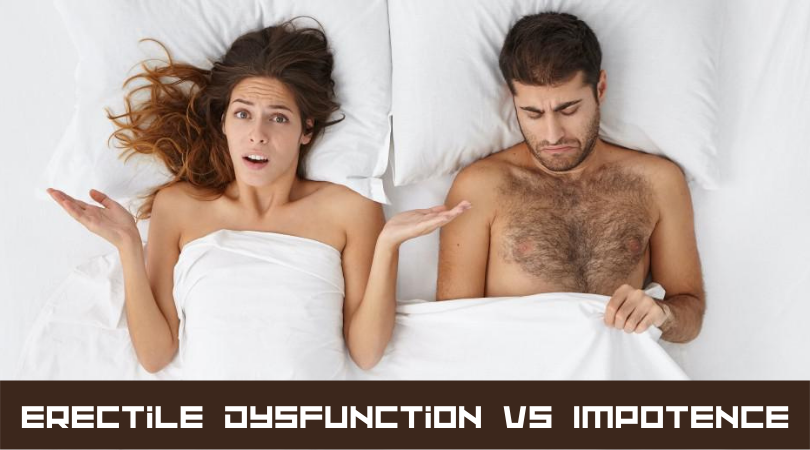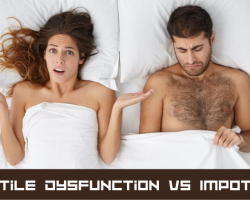 Problems with erection periodically occur even in a perfectly healthy man. The reasons here can be very diverse, including physiological (side effect of medication or excess alcohol in the blood) and psychological (fatigue, anger or self-doubt). If erectile dysfunction occurs frequently, there is a reason to consult a specialist.
Problems with erection periodically occur even in a perfectly healthy man. The reasons here can be very diverse, including physiological (side effect of medication or excess alcohol in the blood) and psychological (fatigue, anger or self-doubt). If erectile dysfunction occurs frequently, there is a reason to consult a specialist.
Most often, the doctor will name erectile dysfunction or impotence as a diagnosis. Today, both of these terms are actively used in medicine and in the household environment. At the same time, sometimes they are synonyms, sometimes they are different diagnoses. From a medical point of view, these terms denote different diseases.
The history of two diagnoses – erectile dysfunction vs impotence
For a long time, the diagnosis of “impotence” was established for all men with complaints of a decrease in the strength and duration of erections. This category included patients whose erection remained, but was not intense for full sexual intercourse.
As a result of research, it also turned out that there are significantly more people with an erection of insufficient quality than with its complete absence. All this was the reason that in 1988 at the European Congress of urologists, sexologists, andrologists and other specialists involved in the treatment of diseases of the male reproductive system, it was decided to introduce a new term. It became the concept of erectile dysfunction, which refers to various disorders of erectile function.
Erectile dysfunction – explanation
The term “erectile dysfunction” is used to refer to a pathological condition in which the quality and duration of an erection significantly decreases. At the same time, sex is possible, but less often or only in certain poses. Erectile dysfunction is a broader concept than impotence. Its manifestation may be a decrease in sexual desire, a decrease in the frequency and quality of night and morning spontaneous erections. Also, with erectile dysfunction, it may be necessary to treat premature ejaculation – one of the rarest manifestations of the disease. Erectile dysfunction can be primary (congenital) or secondary (acquired). In any case, the disease responds well to treatment, especially in the early stages. Without treatment, erectile dysfunction can develop into impotence.
Impotence – short decsription
The term comes from the Latin impotentia (weakness) and denotes the complete absence of an erection. Impotence refers to the extreme degree of erectile dysfunction, when sexual intercourse becomes impossible under any circumstances.
Is it possible to cure impotence?
Unfortunately, impotence cannot be cured completely, but erectile dysfunction – yes. Measures should be taken to the situation as soon as the first symptoms appear. Many men are embarrassed by their disorder, which leads to further complications. In fact, impotence treatment is necessary for about 30% of men, whose age is over 40 years old. If you choose the right means, you will soon be able to forget about the problem once and for all.
Usually doctors recommend conservative methods of treating impotence , which imply:
- sex therapy, that is, discussion with a partner of possible factors provoking the problem;
- regular consultations with a psychotherapist and a sexologist;
- the intake of medications that can increase blood flow to the penis;
- the use of special vacuum erectors;
- the introduction of vasodilating medications into the penis immediately before the start of the act, and men themselves can do such injections.
Sometimes it is necessary to use surgical methods. Experienced specialists recommend how to treat impotence with their help. It is likely that a man will be recommended:
- restoration of blood supply in arteries and veins;
- penile prosthetics.
Both methods are not something extraordinary. They are successfully performed in many cities of the United States. The main thing is to choose a specialist with experience and relevant knowledge.
Posted by Dr. Himanshu Singh

 English
English Deutsch
Deutsch Français
Français Italiano
Italiano Español
Español Svenska
Svenska Português
Português 日本人
日本人 Dansk
Dansk Norsk
Norsk Suomi
Suomi Czech
Czech


